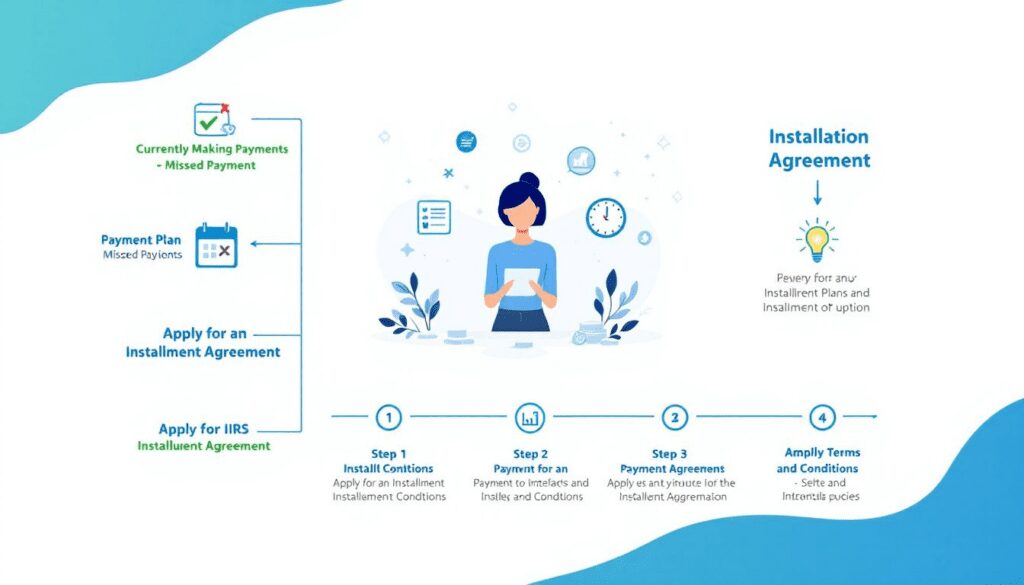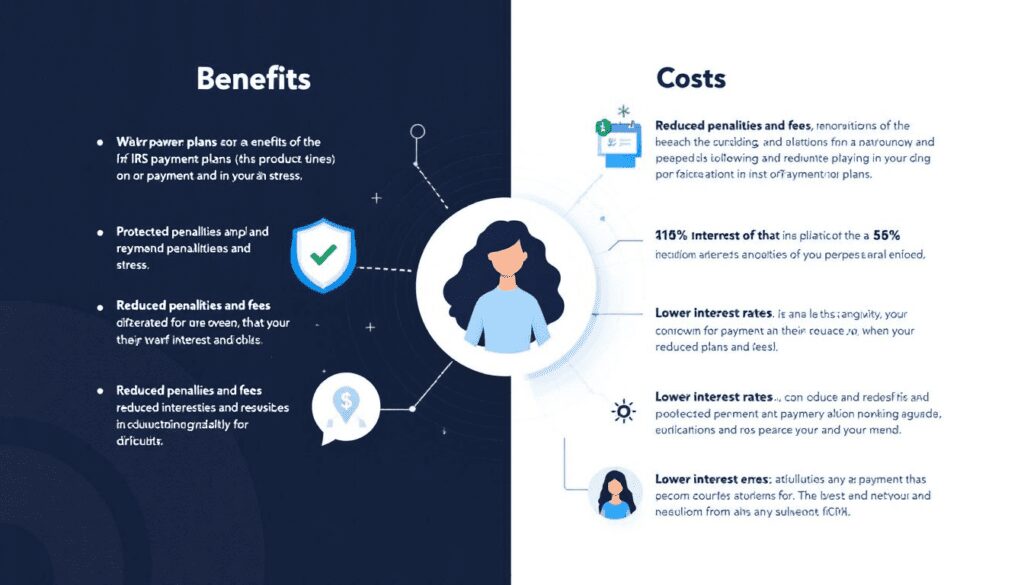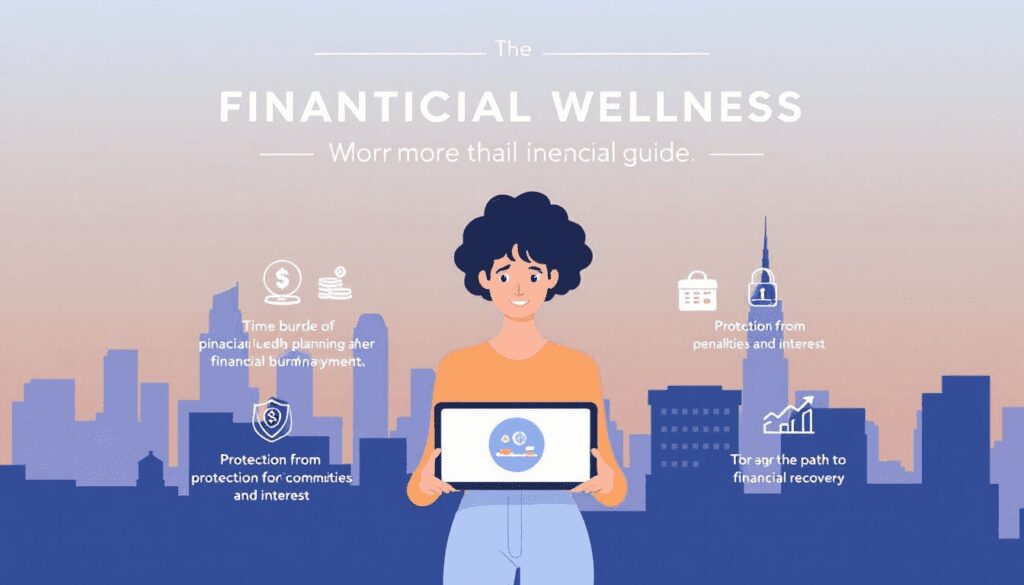IRS Installment Business Payment Plans with Bankers Factoring
Funding and Arranging a Business Payment Plan with the IRS for Your Business Tax Bill
An IRS payment plan allows you to pay your back taxes and payroll tax debt over time instead of in a lump sum. This can help you manage financial stress and prevent IRS collection actions. This article will explore the different Internal Revenue Service (IRS) payment plans available and how to choose the best one for your needs. As a Bankers Factoring client, we can even fund your IRS tax liability with a subordination agreement with the IRS.
We will also discuss invoice factoring and an IRS installment plan to provide you with new working capital and keep the IRS off your back. A business monthly payment plan can stop a lien on your business bank account. Please read about Bankers Factoring’s tax lien solutions and why we need tax documents.
Key Takeaways
- The Internal Revenue Service (IRS) provides various payment plans, including short-term and long-term options, to help taxpayers manage their back taxes and old tax debts effectively.
- Different installment agreements, such as streamlined, guaranteed, and partial payment agreements, cater to diverse financial situations and requirements.
- Timely payments are crucial to avoid additional penalties and interest, so taxpayers must stay organized and responsive to IRS notices.
- Business taxpayers can request invoice factoring as part of their installment agreement. Bankers Factoring can fund your payment arrangements.
- Many times, applicable penalties and IRS charges can be waived or reduced as long as your back payroll taxes payment options are current. A good payment history is critical.
- You can still get working capital funding with invoice factoring from Bankers Factoring with an IRS installment plan. Bankers Factoring will ensure you never miss an IRS payment due date with our A/R factoring services.
- We can also work with EIDL, SBA loans, and subordination agreements.
Understanding IRS Business Payment Plans for Back Payroll Taxes

The IRS offers various installment agreement options to assist taxpayers in managing their tax debts over time. These payment plans can be categorized as either short-term or long-term options, providing flexibility depending on your financial situation and the amount owed.
Entering a payment plan allows you to manage your tax debts over an extended period rather than struggling to pay a large lump sum at once. This can be a lifesaver, especially when dealing with significant tax debt, as it prevents the IRS from taking immediate collection actions against you. Additionally, while your payment plan request is pending, the IRS will suspend collection activities, giving you time to organize.
Requesting a back business payroll tax payment plan can help you manage the financial burden of your tax debt and stay compliant with your tax obligations.
Bankers Factoring can fund your payment plan as part of our non-recourse invoice factoring program. The IRS often waives business tax penalties and interest as part of the long-term installment agreement for back taxes payment plans.
Short-Term Payment Plans
Short-term payment plans are designed for taxpayers who can pay their owed taxes within 180 days. They are ideal if you need more time to gather funds but can pay the full amount quickly. One significant advantage of short-term plans is the $0 setup fee when applying online, making them accessible to those struggling financially. However, it’s important to note that while there are no setup fees, interest and penalties will still apply to the outstanding tax amount.
You can apply for a short-term payment plan installment agreement using the IRS’s Online Payment Agreement tool, designed for quick and efficient setup. Past-due payroll taxes for staffing and similar companies can be part of the tri-party agreement between your company, the IRS, and Bankers Factoring.
After approval, you must make monthly payments until the tax debt is fully settled, helping you avoid long-term financial commitments. Bankers Factoring can help you make tax payments and settle your tax debt with our B2B factoring services.
Long-Term Installment Agreements and Business Payment Plans
Long-term installment agreements provide a solution for those needing more time to settle their tax debt, allowing payments to be spread over a more extended period.
Low-income applicants can benefit from a reduced setup fee of $43, which is refundable under certain conditions. However, it’s crucial to remember that interest and penalties will continue to accrue on the unpaid tax balance until it is fully paid. This plan benefits those who need to make smaller, more manageable monthly payments over several years.
Types of Installment Agreements

The IRS offers several installment agreements to cater to different financial situations. These include streamlined, guaranteed, and partial payment agreements. Each type of agreement has specific eligibility criteria and associated fees, helping taxpayers find a plan that fits their needs.
An IRS installment agreement lets you manage your tax debt with monthly payments. It offers flexibility for significant tax bills to avoid financial strain. Being aware of the different types of agreements helps you choose the best option for your specific situation. Bankers Factoring can fund your business payment plan and the monthly payment amount as we fund your invoices.
Streamlined Installment Agreements
Streamlined installment agreements are part of the IRS’s Fresh Start program, which extends the repayment period to 72 months. These agreements help taxpayers manage their debt without providing extensive financial information.
Qualification requires unpaid taxes to be under $50,000, with a commitment to pay within 72 months. The Online Payment Agreement tool can convert your plan to Direct Debit, simplifying payments.
A Direct Debit installment agreement is required for businesses with tax debts between $10,000 and $25,000.
Guaranteed Installment Agreements
Individual taxpayers with a tax liability not exceeding $10,000 can access guaranteed installment agreements, which ensure IRS approval if the criteria are met.
Businesses applying for guaranteed installment agreements must arrange for any balances over $10,000 to be paid via Direct Debit. This type of agreement is ideal for those with smaller tax debts who want a guaranteed way to manage their payments without extensive financial scrutiny.
Partial Payment Installment Agreements
Partial Payment Installment Agreements (PPIA) are designed for taxpayers who cannot pay the full amount of their tax debt by the Collection Statute Expiration Date (CSED). This agreement allows you to make monthly payments based on your ability to pay, even if it means not fully paying off the debt by the CSED.
This option can provide significant relief for those in severe financial hardship. Still, it’s important to note that the IRS will review your financial situation periodically to ensure your payment amount is still appropriate. The IRS might increase your monthly payments to match your new ability to pay if your financial situation improves.
Applying for an IRS Payment Plan

Applying for an IRS payment plan can be done online through the Online Payment Agreement tool or by submitting Form 9465. When requesting a payment plan, you’ll need to specify the amount you can pay each month and the day of the month you prefer to make your payment.
It’s essential to be realistic about your financial situation to avoid defaulting on your plan. The IRS might take several months to inform you in writing. This notification will confirm that your payment plan has been approved. However, once approved, you can start making monthly payments and managing your tax debt more effectively.
Online Payment Agreement Tool
The Online Payment Agreement tool is convenient for applying for a payment plan. To use this tool, your browser must accept session cookies, which are destroyed once the browser is closed. This tool offers various payment methods, including Direct Debit, Direct Pay, EFTPS, check, money order, and debit/credit card.
The Online Payment Agreement tool offers a faster experience than mailing Form 9465. Businesses with balances over $10,000 must use Direct Debit to set up their plan quickly and without delay.
Form 9465: Installment Agreement Request
Individuals must complete Form 9465 to request a payment agreement with the IRS, ensuring it is filled out accurately to reflect their request.
Form 9465 can be submitted electronically with a tax return when filing online, making it convenient for those who prefer digital handling of their tax obligations.
Providing Financial Information
Sometimes, the IRS may require detailed financial information when applying for a payment plan, particularly if the applicant requests a temporary delay due to financial hardship.
Collecting all relevant financial documents, such as tax returns, W-2s, and bank statements, can help support your case with the IRS and ensure your request is processed efficiently. Being organized and thorough in providing this information can significantly impact the approval of your payment plan request.
Managing Your Payment Plan
Once your payment plan is in place, effective management is key. Ensure you are current with all filing and payment obligations, and take advantage of the flexibility to select a payment amount that fits your budget.
Many times, missing business tax returns are the problem. Plan do get any old business tax returns done ASAP to move the process along.
Taxpayers can extend their repayment period up to 72 months, easing tax debt management. Organized financial information facilitates discussions with the IRS about payment arrangements.
Reviewing and Revising Your Plan
Log into the Online Payment Agreement tool to review your payment plan details. You can view and revise your agreement, due dates, and payment amounts here.
If you can’t modify your installment agreement online, contact the IRS at 800-829-1040. It is essential to ensure that your plan reflects your current financial situation to stay on track with payments.
Avoiding Default
Avoid defaulting on your payment plan to prevent additional penalties and interest. Direct debit from your business checking account ensures timely payments and saves time and money. Contact the IRS immediately if you receive a notice of intent to terminate your installment agreement. Defaulting can result in a reinstatement fee and continued accumulation of penalties and interest.
Ensure sufficient funds are available for direct debit payments and record the transaction in advance to avoid surprises. Bankers Factoring can ensure your payments are made as part of our invoice factoring services.
Please read the top strategies to avoid business bankruptcy.
Benefits and Costs of IRS Payment Plans

IRS payment plans offer benefits and costs. They can limit penalties and interest charges compared to not making payments and trigger the IRS’s 10-year limitation on debt collection, benefiting taxpayers.
However, it’s essential to understand that fees are associated with setting up these plans. For example, there are no fees for making changes to existing Direct Debit installment agreements, but if a payment plan lapses due to default, a reinstatement fee may be applied.
Timely payments and understanding your account obligations are key to avoiding additional costs.
Benefits of Timely Payments
Timely tax payments help avoid costly combined tax penalties and interest, prevent additional charges that can increase your tax liability, and help you manage your debt effectively.
Timely payments help avoid accruing interest, prevent significant increases in the total amount owed, and contribute to better financial health by reducing unnecessary costs.
Understanding Fees and Interest
Setting up an IRS payment plan can cost between $43 and $225, depending on the agreement type. Short-term plans have no setup fees, though interest and penalties still accrue. Longer-term payment plans have different setup fees, requiring direct debit for balances over $25,000. Interest and penalties continue to accrue until the tax debt is fully paid.
A temporary delay in IRS collection doesn’t eliminate tax liability; the debt remains, and the total amount can increase due to accumulating penalties and interest.
Special Considerations for Businesses
Business owners face unique challenges when dealing with tax debt. To establish payment arrangements with the IRS, businesses must meet specific criteria tailored to their situations. For instance, small businesses with tax debts exceeding $50,000 require approval from an IRS representative.
Direct debit from your business checking account ensures timely payments and avoids default, helping business taxpayers manage their tax obligations more effectively.
In-Business Trust Fund Express Agreements
In-business trust fund express agreements allow eligible businesses to settle tax liabilities of up to $25,000 more swiftly. These agreements facilitate quicker resolutions for businesses facing manageable tax debts.
Businesses must owe $25,000 or less to qualify for an In-Business Trust Fund Express Installment Agreement. This streamlined process helps businesses address tax obligations without extensive financial scrutiny.
Factoring Solutions for Businesses
A/R factoring offers a cash advance on accounts receivable, helping businesses meet financial commitments like tax bills and operating expenses. Bankers Factoring offers advances between 80% and 90% of your weekly invoiced amount.
When optimized, factoring can help companies with tax problems. To protect cash flow, businesses should secure an IRS Installment Agreement and subordinate the tax lien to their factoring agreement.
An active IRS Installment Agreement prevents the IRS from levying assets, allowing lenders to continue financing through accounts receivable.
Offers in Compromise

An Offer in Compromise (OIC) allows the IRS to settle a taxpayer’s tax obligations for less than the full amount owed, provided the taxpayer cannot pay in full or severe financial distress.
Taxpayers must have filed all required tax returns and received a bill for at least one tax debt included in the OIC. The IRS evaluates each offer based on the taxpayer’s unique circumstances.
Eligibility Requirements
To qualify for an Offer in Compromise, all tax returns must be filed, a bill for at least one tax debt must be received, and estimated tax payments must be made. Individuals in open bankruptcy are ineligible.
Business owners must make all required federal tax deposits for the current and past two quarters before submitting an Offer in Compromise. Meeting these requirements is crucial for the IRS’s consideration.
Using the Pre-Qualifier Tool
The Offer in Compromise Pre-Qualifier Tool helps taxpayers assess their eligibility, confirming it based on the provided information.
While using the Pre-Qualifier Tool does not guarantee acceptance, it offers a preliminary assessment to determine if you meet the basic criteria before submitting a formal application.
Temporary Delay of Collection
If basic living expenses prevent you from paying your tax debt, you can request a delay in collection. The IRS may mark your account as currently not collectible until your situation improves.
Currently, a non-collectible status indicates financial hardship prevents you from paying your tax debt. However, the debt remains due, requiring close monitoring of your financial situation.
Impact on Debt
Penalties and interest continue to accrue during a temporary delay of collection. While you have temporary relief from payments, your overall debt increases due to accumulating penalties and interest.
Consider this option carefully; it offers short-term relief but can lead to a larger debt burden over time. Understanding its full impact on your debt is crucial when deciding on a temporary delay in collection.
Responding to IRS Notices
Promptly responding to Internal Revenue Service notices is essential to avoid further collection actions, including enforced collections.
Timely replies to IRS notices mitigate risks and avoid processing delays and additional charges. Monitoring IRS correspondence and responding accordingly is essential for managing tax obligations effectively.
Gathering Financial Documentation
Preparing financial documents is crucial when responding to IRS inquiries or notices. Keeping them organized and accessible ensures a prompt response.
Having tax returns, W-2s, bank statements, and other relevant financial information readily available enables quick and accurate responses to IRS notices, preventing complications and ensuring compliance with tax obligations.
Summary
In summary, understanding and utilizing IRS payment plans can significantly ease the burden of managing your tax debt. Various options are available to suit different financial situations, from short-term payment plans to long-term installment agreements. Applying for a payment plan online or through Form 9465 and providing the necessary financial information can streamline the process and ensure timely approval.
Managing your payment plan effectively, including reviewing and revising it as needed, and avoiding default is crucial for maintaining your financial health. The benefits of timely payments and understanding the associated fees and interest can help you make informed decisions and avoid additional costs.
For business taxpayers, special considerations such as In-Business Trust Fund Express Agreements and factoring solutions can provide additional support in managing tax obligations. Offers in Compromise and temporary delays of collection offer alternative solutions for those in severe financial distress.
Responding promptly to IRS notices and gathering the necessary financial documentation is essential for staying on track. By following these guidelines, you can navigate the complexities of IRS payment plans and achieve financial stability.
Frequently Asked Questions
What is an IRS installment agreement?
An IRS installment agreement enables taxpayers to pay their tax debt in manageable monthly payments, alleviating immediate financial pressure. It is a practical solution for those facing difficulties in full repayment.
How do I apply for a short-term payment plan?
To apply for a short-term payment plan, utilize the IRS’s Online Payment Agreement tool for a quick and efficient setup. This streamlined process will help you manage your tax obligations with ease.
What is the benefit of using the Online Payment Agreement tool?
The Online Payment Agreement tool offers a faster and more efficient way to establish your payment plan. It enables you to make payments immediately without the delays associated with mailing Form 9465. The Taxpayer Advocate Service (TAS) is an independent organization within the IRS and can answer some questions.
What happens if I default on my payment plan?
Defaulting on a payment plan may lead to a reinstatement fee and the ongoing accumulation of penalties and interest until the outstanding balance is fully paid. It is essential to address the situation promptly to avoid further financial repercussions.
Can businesses use IRS payment plans?
Indeed, businesses can utilize IRS payment plans, including options such as In-Business Trust Fund Express Agreements, which are designed to assist them in managing their tax obligations effectively via a monthly payment. Bankers Factoring can fund your automatic payments as a client.
